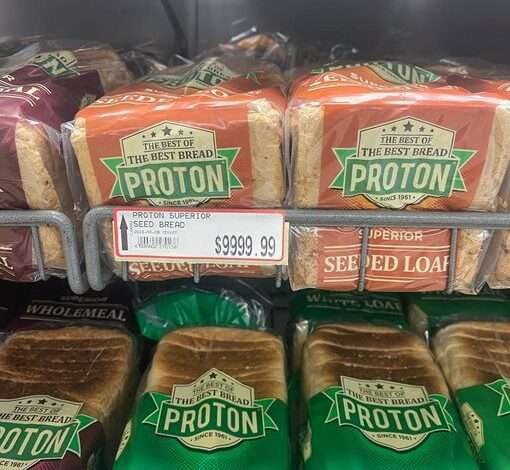Retailers Ban Customers From Taking Pics of Commodity Prices
The retailers’ decision comes amidst fears of a government crackdown on businesses over ever-rising prices.

Retailers in Harare are said to be banning customers from taking pictures of commodity prices, with some shoppers even being forced to delete photos of prices.

The retailers’ decision comes amidst fears of a government crackdown on businesses over ever-rising prices.
COMMODITY GOODS PRICES RISE AGAIN
GoZ has accused businesses of distorting prices and fuelling inflation, while the RBZ has frozen bank accounts of at least 12 suppliers and retailers who were allegedly rejecting payments in local currency and manipulating the official exchange rate.
President Mnangagwa has threatened to withdraw the licences of businesses which were hiking prices. He described business people who were hiking prices as “detractors” who were sabotaging him ahead of the August 23 elections. He said:
As we convene today and focus on the elections, the usual machinations and heinous acts of our country’s detractors to reverse our development agenda are glaring.
This is evidenced by their antics and asymmetrical warfare tactics, which include the attack on our currency and the wanton increase in prices of basic commodities.
Vakanyangira yaona (we are fully aware). They will never succeed and perpetrators are being brought to book.
Most retailers have pegged prices in United States dollars, while others have deactivated point-of-sale machines as a strategy to reject the local currency.
The Zimbabwe dollar was yesterday officially trading at $6,713, while on the parallel market, it was exchanging at $10,000 to the greenback.
RETAILERS TO CONFRONT GOVERNMENT
Consumers have been sharing pictures on social media of high commodity prices, with some prices being shockingly high, such as a loaf of bread for $12,000.
The Confederation of Zimbabwe Retailers’ President, Denford Mutashu said:
“Formal retail is currently struggling as the exchange rate situation and challenges created by excessive money supply and other policy missteps are now being shoved back at business doorsteps.”
Meanwhile, economist Gift Mugano opines that it is now too late for the Zimbabwean government to liberalise the foreign exchange rate, given the high inflation rates. Mugano suggests that the only option left is to bury the Zimbabwean dollar and deal with its ghost in the form of the US dollar.


























